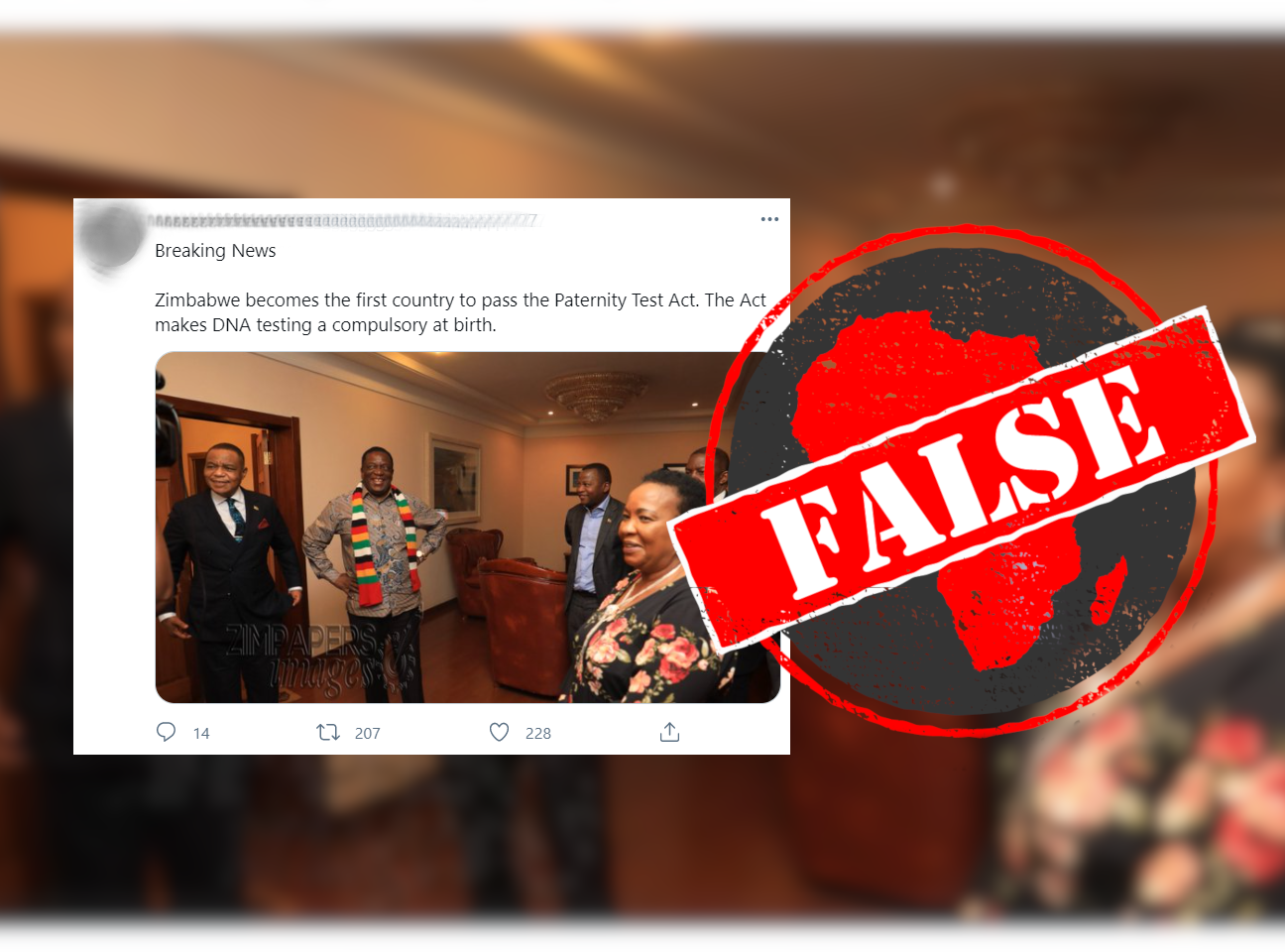“Zimbabwe becomes the first country to pass the Paternity Test Act,” reads a 27 April 2021 tweet widely shared as a screenshot on Facebook. “The Act makes DNA testing a compulsory at birth,” it adds, but gives no evidence for its claims.
A similar message posted on Facebook two days later adds: “No DNA TESTS no Birth certificate.” It also provides no evidence.
A paternity test is meant to determine whether someone is the biological father of a child. Like a maternity test to determine the biological mother, it compares the DNA of the child and a known parent to the DNA of the person thought to be the second parent. Less accurate tests can be done without a known parent.
But has Zimbabwe passed a “Paternity Test Act”?

No DNA test for birth certificate
Zimbabwe’s Department of the Registrar General does not require a paternity test for a birth certificate to be issued.
When the child’s parents are unmarried, the department says both of them “must be present to sign a declaration of paternity”. But this does not involve a DNA test. Exceptions can be made if, for example, “the biological father refuses to acknowledge paternity”.
The 27 April tweet claimed to be “breaking news”. Has Zimbabwe recently adopted new regulations?
No news about a “Paternity Test Act” has appeared on the parliament of Zimbabwe’s official website, and paternity testing was not raised at the most recent meeting of the country’s national assembly, which has not gathered since 22 April 2021.
The Zimbabwean senate has met since then, on 27 and 28 April, but did not vote on or even mention a paternity test act.
Similar claim made in 2017 – false then and false now
In 2017, Zimbabwe’s registrar general, then Tobaiwa Mudede, refuted claims that his department would require paternity tests in birth certificate applications.
Mudede said at the time: “Who am I to force people to conduct DNA tests? Where do I come in? I do not even think about that and have never contemplated on it.”
Republish our content for free
For publishers: what to do if your post is rated false
A fact-checker has rated your Facebook or Instagram post as “false”, “altered”, “partly false” or “missing context”. This could have serious consequences. What do you do?
Click on our guide for the steps you should follow.
Publishers guideAfrica Check teams up with Facebook
Africa Check is a partner in Meta's third-party fact-checking programme to help stop the spread of false information on social media.
The content we rate as “false” will be downgraded on Facebook and Instagram. This means fewer people will see it.
You can also help identify false information on Facebook. This guide explains how.


Add new comment